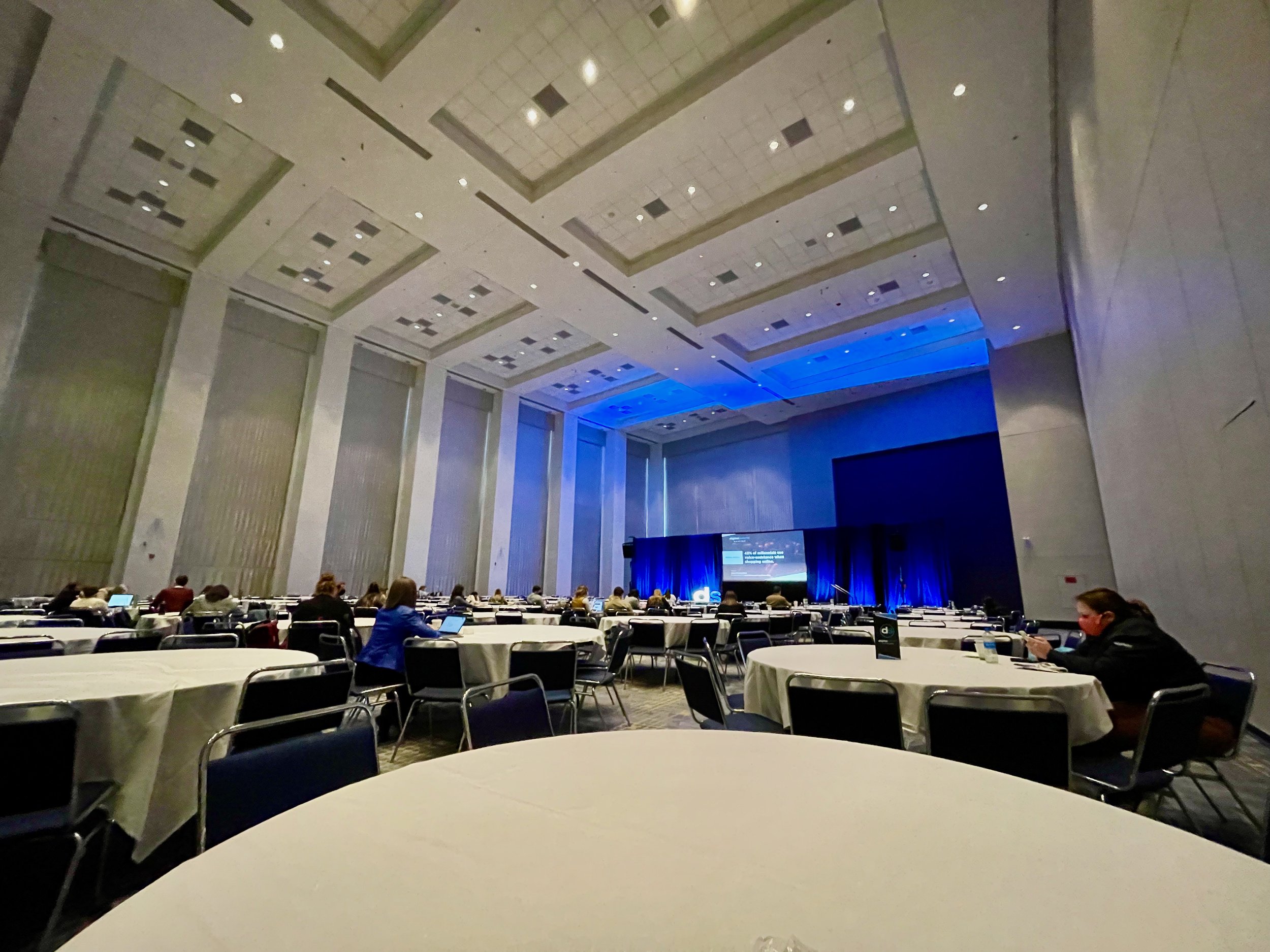
Conference: Real-time audience feedback from audience
Asking conference session attendees to participate in the science we were presenting them provided a great opportunity to have people try experience sampling for themselves and gather meaningful feedback on the presentations Michelle Stinson Ross was giving to the Digital Summit audiences.
Target audience & strategy
For this proof of concept testing, we asked digital marketers of all skill levels and experience to take out their smartphones and opt in to a dedicated SMS number. This one number was used at several speaking engagements all across the country. After the conference session we would trigger one question about how the audience felt about either Ms. Stinson Ross as a speaker or how they felt about the topic of Emotional Branding.
The strategy was to test several theories about how people would use emotional data technology:
How easy it was for people to participate
How many people would choose to opt in when prompted
How many people would respond to the immediate prompt
How many people would choose to remain subscribed and continue to engage in other prompts
How could we use the feedback to refine and improve the presentations over time
Implementation & Creativity
The creativity was in how we embedded the technology into an interactive in-person experience. Since the whole series of speaking engagements was about the role of emotion in making purchase decisions and long-term brand affinity, showing an audience how a purely emotional response could give them instant feedback about an experience could be part of the presentation. The entire talk revolved around explaining the connection between emotion and decision-making.
In order to do this with the Digital Summit audiences we programmed a Conference Attendee group in the emotional data web app and scheduled feedback questions shortly after the end of the conference session.
Results
How easy it was for people to participate
Most people have their smartphone with them at a conference. Consistently 60 – 70% of people in the room willingly took out their phones and opted in when prompted.
How many people would choose to opt in when prompted
Depending on the number of people in any one session (spaced and masked per covid precautions) we would get 40 to 70 people opting in per show
How many people would respond to the immediate prompt
Given that the prompt was usually served right after the talk in a noisy conference environment we were consistently getting response rates of 20-40%
How many people would choose to remain subscribed and continue to engage in other prompts
80 – 90% of participants chose to stay actively engaged even when reminded that they could opt out.
How could we use the feedback to refine and improve the presentations over time
The emotional sentiment (positive or negative) and the moods (happy, thankful, skeptical, confused, etc) were the most helpful in fine tuning the presentation. We quickly established an 80% positive response rate and maintained it across 6 speaking engagements from August through December of 2021
Along with testing things we planned to test, we were also able to validate that this type of feedback is most meaningful when tied to a specific audience (customer) engagement. It was very easy to interpret the feedback and make adjustments because we knew that the feedback was in response specifically to the 30 minute conference session. We can be confident that the same feedback for other touch points (live demo, landing page, blog post, chatbot thread) would enable a business to make adjustments to those specific touch points and improve the customer experience.
Find out how you can start gathering event data.
Participation
Response Rate
Engagement Rate
Positive Feedback
Michelle Stinson Ross
Public Speaker, CMO, Feelalytics



